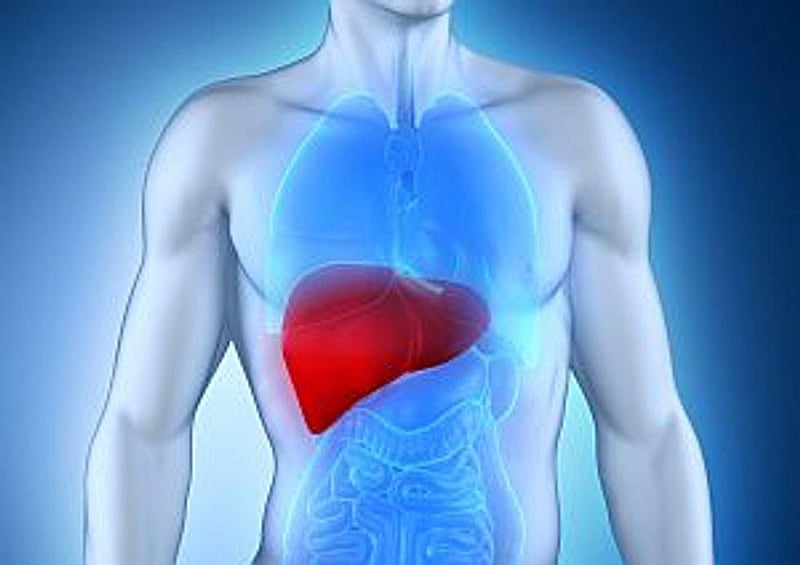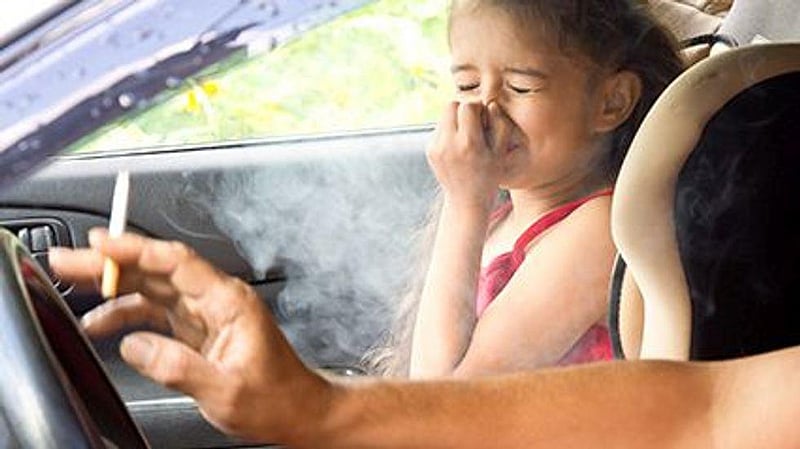Manténgase sano!
278 Resultados de su búsqueda "Environment".
Resultados de noticias de salud - 278
Prolonged stays in space appear to damage astronauts' brains, a small, new study suggests.
The researchers studied five Russian cosmonauts, mean age 49, who stayed on the International Space Station (ISS) for an average of 5.5 months.
Blood samples were taken from the cosmonauts 20 days before their departure to the ISS, and one day, one week, and about three weeks after they return...
- Robert Preidt
- |
- October 18, 2021
- |
- Página completa
Children who spent more time in nature during pandemic lockdowns suffered fewer behavioral and emotional problems, British researchers say.
The investigators also found that children in wealthier families tended to increase their connection to nature during the pandemic more than those from poorer families.
The new study included 376 families in the United Kingdom who had children a...
- Robert Preidt
- |
- October 15, 2021
- |
- Página completa
You can add obesity and its related health risks to the long list of threats posed by climate change, researchers report.
In a new review, researchers from Fox Chase Cancer Center in Philadelphia outlined the association between climate change and obesity.
As global temperatures increase, people may become less physically active and less able to burn excess fat, putting them at incr...
- Robert Preidt
- |
- October 14, 2021
- |
- Página completa
Urban dwellers around the globe are sweating through three times as many "extreme heat" days as their counterparts did in the 1980s, a new study suggests.
The study is the latest to chart humans' growing exposure to dangerously high temperatures. Experts said it looked at what's happening in finer detail than previous research has -- and it suggests that exposure to extreme heat is more w...
- Amy Norton HealthDay Reporter
- |
- October 13, 2021
- |
- Página completa
Climate change is the "single biggest health threat facing humanity," and governments must "act with urgency" to tackle the crisis, a World Health Organization (WHO) special report warns.
In advance of a United Nation's climate change summit in early November, groups representing 45 million nurses, doctors and health professionals worldwide signed an open letter urging action on the clima...
- Robert Preidt and Robin Foster
- |
- October 12, 2021
- |
- Página completa
Scientists in Japan have discovered yet another tick-borne virus that can make people sick.
The Yezo virus is transmitted by tick bites, and triggers fever and a reduction in blood platelets and white blood cells.
"At least seven people have been infected with this new virus in Japan since 2014, but, so far, no deaths have been confirmed," said Keita Matsuno, a virologist at Hokkaid...
- Robert Preidt
- |
- October 7, 2021
- |
- Página completa
You might think that wildfires in the western United States would only affect folks in places like Colorado, California or Oregon.
But a new study estimates that three-quarters of smoke-related deaths and visits to the emergency room for asthma in the United States happen east of the Rocky Mount...
- Cara Murez
- |
- October 7, 2021
- |
- Página completa
The rings of stately pines on the coasts of North and South Carolina offer telling long-term evidence of climate change and a chilling forecast for the future.
The upshot: The last 300 years have gotten wetter and wetter, making hurricanes ever more dangerous.
"Our findings suggest that the maximum amount of rainfall from these storms is increasing and is likely going to continue to...
- Denise Mann HealthDay Reporter
- |
- October 6, 2021
- |
- Página completa
More than 50% of American children have detectable blood lead levels, a new study reveals. And young children who live in places with lots of pre-1950s housing and low incomes have the greatest risk.
"Public health authorities have worked commendably to reduce lead exposure for decades, and yet, substantial risk remains," said study co-author Dr. Harvey Kaufman, head of health trends rese...
- Steven Reinberg
- |
- September 27, 2021
- |
- Página completa
Nuclear war would trigger worldwide climate change and take a dire toll on food production and human health, according to scientists who studied different scenarios using a modern climate model.
"Although we suspected that ozone would be destroyed after nuclear war and that would result in enhanced ultraviolet light at the Earth's surface, if there was too much smoke, it would block out t...
- Cara Murez
- |
- September 27, 2021
- |
- Página completa
When COVID-19 restrictions forced you indoors, it brought birds back to North America, new research shows.
Across the United States and Canada, birders documented an 80% increase among most of the 82 species they recorded since the start of pandemic restrictions last year.
Some species (26%) increased in response to drops in certain types of human activity, while decreasing in resp...
- |
- September 26, 2021
- |
- Página completa
In a move to combat global warming, the U.S. Environmental Protection Agency (EPA) announced Thursday that it will restrict U.S. production and use of hydrofluorocarbons by 85% over the next 15 years.
Hydrofluorocarbons (HFCs) are potent greenhouse gases often used in refrigerators and air conditioners, and they are vastly more powerful than carbon dioxide. These gases can leak into the a...
- Steven Reinberg
- |
- September 23, 2021
- |
- Página completa
Living within a few blocks of a shooting increases the risk that a child will end up visiting the emergency department for mental health-related problems, researchers say.
The new study found significant increases in mental health-related ER visits in the two weeks after a neighborhood shooting, especially among kids who lived closest to it and those exposed to multiple shootings.
"...
- Steven Reinberg
- |
- September 21, 2021
- |
- Página completa
Liver cancer is on the rise in rural America, but on a downswing in cities, new research shows.
Hepatocellular carcinoma (HCC) is the most common type of liver cancer and the fastest-growing cause of cancer deaths in the United States. It's rising at an annual rate of nearly 6% in rural areas, approaching rates seen in cities, the study authors found.
"Considering that one in five A...
- Steven Reinberg
- |
- September 21, 2021
- |
- Página completa
It's not just athletes on the field who suffer when outdoor temperatures get too high. Members of college and high school marching bands are at increased risk of heat-related illness, too, researchers warn.
"They go out there, and they often wear these really heavy wool uniforms," said lead author Andrew Grundstein of the University of Georgia. "They practice many times for hours and hour...
- Steven Reinberg
- |
- September 20, 2021
- |
- Página completa
Twenty years on, responders to the World Trade Center attacks in New York City are showing increased risks of certain cancers, two new studies confirm.
Researchers found higher-than-average rates of prostate cancer among firefighters, medics and other workers who toiled at the disaster site on and after Sept. 11, 2001.
And compared with firefighters from other major U.S. cities...
- Amy Norton HealthDay Reporter
- |
- September 13, 2021
- |
- Página completa
Workers, take heed: Your place of work can help bring on or exacerbate asthma, a new study suggests.
Common workplace triggers include poor ventilation and moldy air conditioning systems, cleaning products and even the toner used in printers, the researchers said. Employees with asthma caused by the office environment often quit, the researchers said, especially if employers don't do anyt...
- Steven Reinberg HealthDay Reporter
- |
- September 9, 2021
- |
- Página completa
Wildfires are killing people around the world -- even those with limited exposure to wildfire-related pollution, an international team of researchers reports.
The new research revealed that short-term exposure to wildfire-related fine particulate matter (PM2.5) in the air is i...
- Steven Reinberg
- |
- September 9, 2021
- |
- Página completa
It's more than just an annoyance: Long-term exposure to traffic and train noise may increase the risk of dementia and Alzheimer's disease, Danish researchers report.
The study authors said that more than 1,200 of Denmark's nearly 8,500 cases of dementia in 2017 may have resulted from exposure to noise, which means that reducing traffic noise might help prevent the thinking, memory and beh...
- Steven Reinberg
- |
- September 9, 2021
- |
- Página completa
An editorial written jointly by the editors of more than 230 medical journals worldwide has a grim warning for humanity: Climate change is making people sick -- and it's going to get worse.
As reported by CNN, the same global warming that's causing extreme weather events has had a number of negative impacts on human health during the past two decades, the journal editors said. A...
- Cara Murez
- |
- September 7, 2021
- |
- Página completa
Hotter weather driven by climate change is bad news for people with chronic obstructive pulmonary disease (COPD), a new study warns.
Researchers say warming trends could worsen COPD symptoms, such as shortness of breath, wheezing or coughing. Millions of people have COPD, a combination of emphysema and chronic bronchitis that is often tied to smoking.
"The climate emergency is prov...
- Robert Preidt
- |
- September 3, 2021
- |
- Página completa
Algeria recently became the last country in the world to halt sales of highly toxic leaded gasoline, the U.N. Environment Agency (UNEP) said Monday.
The agency said that marked the "official end" of the use of the fuel that's been linked to a wide range of human health problems, the Associated Press reported.
"The successful enforcement of the ban on leaded petrol is a huge...
- Robert Preidt and Robin Foster
- |
- August 31, 2021
- |
- Página completa
The greener your neighborhood, the lower your risk of heart disease.
That's the takeaway from a new study, which reported that adding to a neighborhood's green space can have a big payoff for public health.
"For the cost of one emergency room visit for a heart attack, trees could be planted in a neighborhood with 100 residents and potentially prevent ten heart diseases," said study ...
- Robert Preidt
- |
- August 30, 2021
- |
- Página completa
Leaky sewer pipes are to blame for large amounts of human medicines getting into rivers, lakes and other bodies of water, a new study reveals.
Researchers found that tens of thousands of doses of drugs get into Chesapeake Bay in Maryland every year due to seeping sewer pipes.
"Pharmaceuticals enter freshwaters through multiple pathways, including effluent from wastewater treatment a...
- Robert Preidt
- |
- August 23, 2021
- |
- Página completa
The Biden Administration said Wednesday that a widely used pesticide will be banned because it's been linked to neurological damage in children.
The new rule to block the use of chlorpyrifos on food will take effect in six months, the Environmental Protection Agency said.
"Today [the] EPA is taking an overdue step to protect public health," EPA head Michael Regan said in an agency ...
- Robert Preidt and Robin Foster
- |
- August 19, 2021
- |
- Página completa
While breathing in secondhand smoke is known to harm kids' lungs, new research suggests that children whose parents smoked are also more prone to developing rheumatoid arthritis later in life.
"Our findings give more depth and gravity to the negative health consequences of smoking in relation to [rheumatoid arthritis], one of the most common autoimmune diseases," said lead author Dr. Kazu...
- Robert Preidt
- |
- August 19, 2021
- |
- Página completa
The wildfire smoke now smothering wide portions of the United States isn't just stinging eyes and tightening chests -- it also might be contributing to the current surge of severe COVID-19 cases.
Data from three Western states subject to frequent wildfires shows that COVID-19 cases and deaths increase with the amount of smoke pollution in the air, according to a new study.
As wildfi...
- Dennis Thompson HealthDay Reporter
- |
- August 16, 2021
- |
- Página completa
Smoke from wildfires burning along the West Coast is choking the entire United States, reminding everyone of the hazards of climate change.
But that haze isn't just stinging your eyes and choking your breath -- it poses a direct threat to your health, experts say.
Wildfire smoke has been shown to increase risk of heart attacks and strokes, as well as lung ailments like asthma, Ameri...
- Dennis Thompson HealthDay Reporter
- |
- August 9, 2021
- |
- Página completa





























